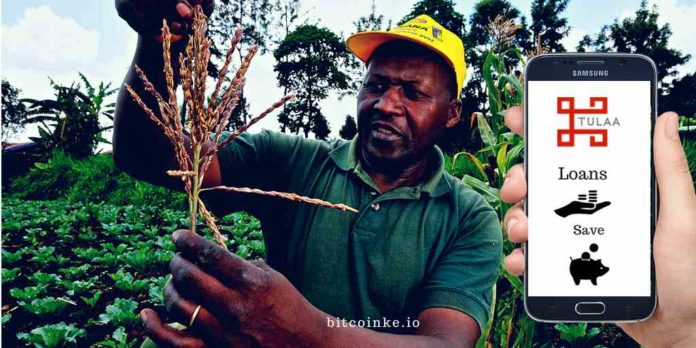 Tulaa enables smallholder farmers to lay-away and borrow money to purchase the right inputs at the right time.
Tulaa enables smallholder farmers to lay-away and borrow money to purchase the right inputs at the right time.
Tulaa, a mobile commerce platform that allows farmers to save and borrow, earlier this month, received $627,000 in seed funding, according to Disrupt Africa. The funds will enable the firm to expand further into the East African region.
The investors that contributed to the seed funding include AHL Venture Partners, Beyond Capital, Rafiki Ventures, and Global Partnerships/Eleos Social Venture Fund.
“Four out of five families in Africa depend on agriculture for their livelihoods, but many are trapped in a cycle of poverty driven by lack of access to inputs, finance and markets. The unmet demand for smallholder finance alone in Africa is about US$30 billion. In Kenya, less than four per cent of all bank loans go to the agricultural sector,” said Hillary Miller-Wise, Tulaa founder.
Hillary said Tulaa is the only end-to-end platform in Kenya that is eliminating the barriers that farmers face when accessing inputs, finances, and markets.
“In one year, we have acquired nearly 10,000 farmers. We have partnerships with major input suppliers such as Syngenta, Toyota and OCP. We also have partnerships with banks and MFIs such as KCB, Juhudi Kilimo, Musoni and Rafiki Microfinance,” she stated.
Tulaa uses “mobile technology and last mile agent networks to connect agri-input suppliers, financial service providers, and commodity buyers to smallholder farmers.” The firm was incubated inside Esoko, a communication and information service for African agricultural markets.
RELATED ARTICLE: Government signs financial agreement with an international funding organization to boost fish farming in Kenya
RELATED ARTICLE: Microfinance pours in cash and inputs for farmers
RELATED ARTICLE: Dairy farmers milk fortunes with new finance model
The agri-centric startup also received grant funding from USAID and CGAP and won the Facebook Africa Innovation Challenge in 2017.
Tulaa currently operates in Kenya and Ghana and could expand internationally at some point in the future.
“We are focused in Kenya for now. Our plan is to break even in Kenya before expanding to other markets in East Africa,” Hillary explained.
Recently, Kenya’s blockchain and AI taskforce announced plans to integrate blockchain technology into the agricultural supply chain to allow consumers to track and trace the origin of their food. Tulaa could be a possible partner for this project since it already has a network of farmers who could benefit from the trust the blockchain offers when establishing a niche market.